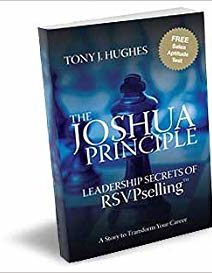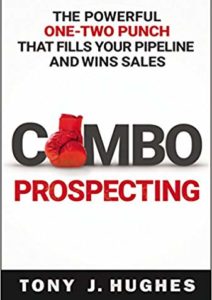One of the people I coach was recently in a meeting with their reseller and the room was filled with all the stakeholders and decision-makers for a huge enterprise opportunity they had been working with a large government department for 15 months. Toward the end of the meeting, the CIO (who owns the budget and signs-off on a purchasing decision) asked; “How long will it take to stand this up for us?” The channel partner salesperson jumped in; “The really good thing about what we’re offering here is …” He went on to talk about the joys and wonders of the features they were offering in their ‘solution’. I kid you not – it really happened.
The best response would have been to ask; “When do you need to have it up and running?” Then follow-up a little later with; “Why is that date important and what happens if it’s missed for some reason?” A masterful sales person would then ask, “I’ll need to confirm with our people but for us to commit resources to make that date we will probably need purchasing paperwork from you by X date… what needs to happen on your side for us to be able to achieve that?”
The big lesson here is that we need to really listen rather than simply wait for our next opportunity to speak. So many salespeople are not really engaged in listening and instead focus on projecting their message or pitch. No matter what the situation – counseling, resolving conflict, interviewing, consulting, or selling – we need to lead by being fully immersed in the conversation and ask insightful open questions. It’s always a mistake to use clumsy outdated questioning techniques to attempt manipulation. Transparent sincerity and a genuine interest in the other person is the best way to build trust and positive influence.
So, how do salespeople manage to seize defeat from the jaws of victory after they’ve done so much good work to develop an opportunity and establish value? A lack of situational awareness causes failure in business and other areas of life. Here are other things that salespeople must avoid:
- Being distracted and failing to be fully there. A sure-fire turn-off for anyone you are seeking to influence.
- Acting without first thinking. Every action can have unintended consequences and all tactics should be executed within a well-conceived strategy.
- Failing to plan a meeting or leaving without creating progression. You’re not a professional visitor; instead, you need to be an engineer of value, process, and tangible business outcomes.
- Failing to understand the customer’s internal processes for evaluation, selection, and procurement process. What date matters to them and why is it important? What’s their process and who needs to approve?
- Introducing unnecessary new information or people. Beware your chest-beating boss who wants you to take them out there to close the deal.
- Allowing lawyers to hijack the process. Lawyers need to be instructed rather than be allowed to engage in esoteric ego-fests. Especially beware external lawyers who make more money the longer it takes and the more complex it becomes
If you are in a meeting and you hear a ‘buying signal’ from a client, then ask an intelligent question that seeks to understand their readiness to commit. It is not a case of manipulating or pressuring the buyer, it is instead all about working with them in partnership to ensure you understand what they are seeking to achieve and what needs to happen for them to be ready to commit to working together with you. Closing the sale opens the relationship and commences the process of you delivering for the buyer on every promise of value. Remember that a customer is only really a customer when you have delivered for them and they are a happy advocate for you in the market.












